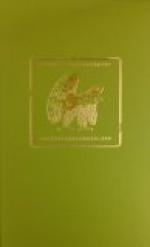Since he had not relieved her of the deed, she laid it down on the secretary to take the photograph.
“This is a picture of little Silva,” she said. “It would have made a difference about the share in the Aurora if he had lived. He must have been provided for. David would have seen to that.”
“There was a child!” His voice rang softly like a vibrant string. “You spoke of him that night you were lost above Scenic Springs, but I thought it was a fancy of delirium. It seemed incredible that David should not have told me if he had a son.”
She did not answer directly, but nodded a little and moved back to her chair.
“He was christened Silva Falconer, for my mother’s father and mine,” she said. “They both were greatly disappointed in not having a son. I am going to tell you about him, only it will be a long story; please be seated. And it would be easier if you would not look at me.”
She waited while he settled again in his chair and turned his eyes to the blue mountain tops. She was still able to see his face. “Silva was over six months old when this photograph was taken,” she began. “It was lost, with the letter to David that enclosed it, on some terrible Alaska trail. Afterwards, when the mailbag was recovered and the letter was returned to me through the dead-letter office, two years had passed, and our little boy was—gone. You must understand I expected David back that first winter, and when word came that his expedition to the interior had failed, and he had arranged to stay in the north in order to make an early start in the following spring, I did not want to spoil his plans. So I answered as gayly as I could and told him it would give me an opportunity to make a long visit home to California. I went far south to Jacinta and Carlos. They were caretakers at the old hacienda. My mother had managed that, with the people who bought the rancheria and built the hotel and sanitarium. Jacinta had been her nurse and mine. She was very experienced. But Silva was born lame. He could not use his lower limbs. A great specialist, who came to the hotel, said he might possibly recover under treatment, but if he should not in a year or two, certain cords must be cut to allow him to sit in a wheel chair, and in that case I must give up hope he would ever walk. But—the treatment was very painful—Jacinta could not bear to— torture him; I could not afford a trained nurse; so—I did everything. He was the dearest baby; so lovable. He never was cross, but he used to nestle his cheek in my neck and explain how it hurt and coax me not to. Not in words, but I understood—every sound. And he understood me, I know. ‘You are going to blame me, by and by, if I stop,’ I would say, over and over; ‘you are going to blame me for bringing you into the world.’”
Her voice broke; her breast labored with short, quick breaths, as though she were climbing some sharp ascent. Tisdale did not look at her; his face stirred and settled in grim lines.




